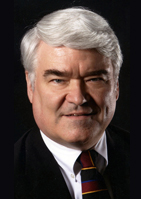© 2012 The Texas Lawbook.
By Janet Elliott
Staff Writer for The Texas Lawbook
AUSTIN – The Texas Supreme Court Friday rejected another high-profile challenge to the state’s main business tax, ruling that the levy is applied in an equal and uniform manner.
The ruling gives the Legislature breathing room to decide whether to revisit the tax during the 2013 session. Since being revised six years ago, the franchise tax has been criticized on many levels, including its failure to meet revenue projections.
Food and drink giant Nestle USA Inc. wanted a refund of $8.68 million it paid to the state and an injunction against future collections. It argued that the franchise tax treats similar businesses in different ways, in violation of the Texas Constitution’s requirement that taxes be equal and uniform.
The corporation said it should not be assessed at a one percent rate for manufacturers because its manufacturing operations are located outside Texas. It said it should be taxed at the 0.5 percent rate for wholesalers and retailers.
The court said the tax is constitutional because it applies equally to manufacturers, in state or out, as a rational classification related to the privilege of doing business in Texas. It said it was reasonable for the Legislature to conclude that a taxpayer’s in-state wholesaling would benefit from its manufacturing activities out of state.

“What Nestle criticizes as a departure from uniformity is actually an attempt to treat like taxpayers alike,” said Justice Nathan Hecht.
The court also rejected Nestle’s claim that the tax violates the Commerce Clause of the U.S. Constitution.
“Location is not the basis for different treatment because in-state companies that manufacture will pay the same rate as Nestle and out-of-state companies that do only wholesaling and retailing will qualify for the lower rate,’” said Hecht.
Justices Don Willett and Debra Lehrmann dissented, saying the court should not have heard the case because it lacks exclusive jurisdiction over this type of taxpayer constitutional challenge.
Peter Nolan, who represented Nestle, said the court gave the Legislature broad discretion in structuring tax laws.
“Using that broad discretion, the court found the franchise tax, even with all of its special provisions for special taxpayers, was reasonably related to the value of the privilege of doing business in Texas,” he said. “This was because the court found the Legislature could have reasonably believed the different treatment of different taxpayers was designed to better value the privilege.”
The state was represented by Assistant Solicitor General Rance Craft.
The franchise tax was expanded in 2006 as part of a compromise to lower property taxes and to settle a school finance lawsuit. It is the state’s second-largest source of revenue behind the sales tax, and is expected to generate $5.5 billion this fiscal year.
The tax withstood an assault last year over claims that it functioned as a personal income tax on limited partnerships.
Major business groups took sides in the Nestle case.
The National Federation of Independent Business joined Nestle in arguing the tax’s unconstitutionality issue before the high court.
“On behalf of our nearly 25,000 members, we are disappointed in the court’s decision,” said Will Newton, the group’s Texas executive director. “Since its inception, the tax has been unfair and burdensome for far too many struggling business owners.”
A coalition of manufacturers and energy industries asked the court to uphold the tax. They benefitted most from the property tax cut and broadening of the tax base.
The tax is based on a business’s total revenue minus the cost of goods sold, compensation or 30 percent. Businesses with receipts of less than $1 million are exempt.
© 2012 The Texas Lawbook. Content of The Texas Lawbook is controlled and protected by specific licensing agreements with our subscribers and under federal copyright laws. Any distribution of this content without the consent of The Texas Lawbook is prohibited.
